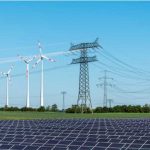In a move towards a sustainable future, Mubadala Capital, the investment wing of Abu Dhabi’s sovereign wealth fund, has unveiled plans to inject $13.5 billion into a significant biofuels project in Brazil over the next decade. This landmark investment is part of a broader strategy by the asset management firm to bolster sustainable development in the Latin American nation.
During an interview with the Financial Times, Oscar Fahlgren, head of Brazil strategy at the sovereign wealth fund, disclosed the comprehensive budget for the ambitious endeavor. The flagship initiative aims to produce renewable diesel and sustainable aviation kerosene predominantly sourced from non-food plant matter. Spearheaded by Mubadala’s energy subsidiary, Acelen, the project will comprise five distinct $2.7 billion modules, with production slated to commence by the close of 2026.
Each module will encompass a state-of-the-art biorefinery with a daily processing capacity of 20,000 barrels of fuel, complemented by essential infrastructure and cultivated areas dedicated to growing feedstock crops. Fahlgren emphasized Brazil’s unparalleled agricultural capabilities, attributing its suitability for such endeavors to its favorable climate and fertile soil.
The project of the Abu Dhabi firm also entails the conversion of an existing oil refinery in Bahia, a northeastern state in Brazil, acquired from Petrobras in 2021. Financing for the ambitious $13.5 billion undertaking will be secured through a combination of equity and debt over the course of five to ten years.
Mubadala Capital’s significant investment in the bioenergy sector builds upon its extensive $6 billion portfolio in Brazil, which constitutes a substantial portion of its global investments. The firm views Brazil as a strategic hub for green energy transition investments, citing ample opportunities and a conducive investment environment.
Furthermore, Mubadala aims to establish a new stock exchange in Brazil next year through its Americas Trading Group, aiming to enhance the country’s financial infrastructure. Fahlgren underscored the optimism surrounding Brazil’s investment climate, hinting at potential future exits from existing assets.
In a separate development reported by Bloomberg in March, Mubadala Capital expressed interest in acquiring struggling international food franchises in Brazil, such as Outback Steakhouse, as part of its broader expansion strategy in Latin America. The investment arm recently assumed control of Zamp, the operator of Burger King and Popeyes outlets in Brazil, signaling its intent to consolidate various foreign food franchises under one banner.




